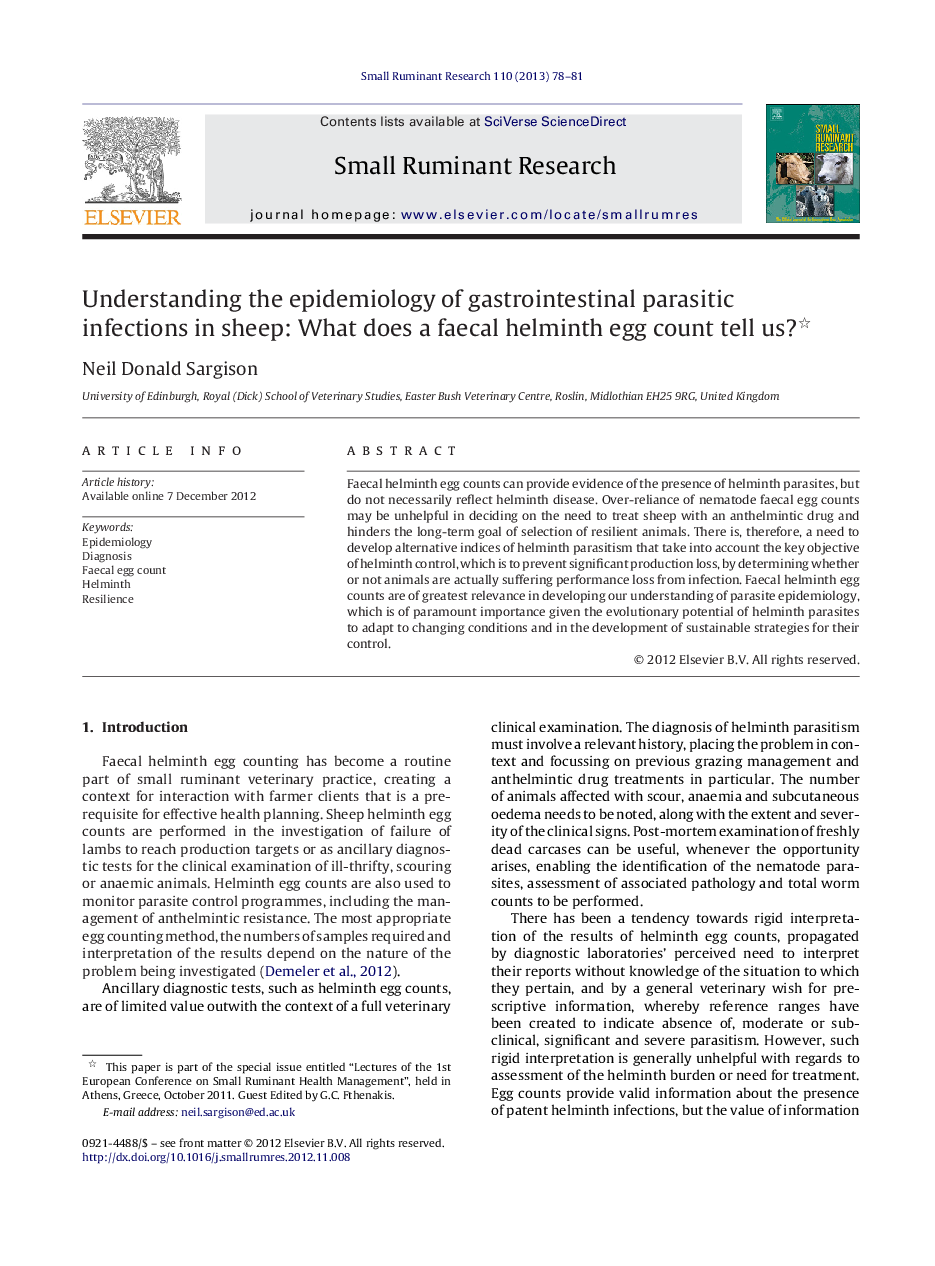| Article ID | Journal | Published Year | Pages | File Type |
|---|---|---|---|---|
| 2457119 | Small Ruminant Research | 2013 | 4 Pages |
Faecal helminth egg counts can provide evidence of the presence of helminth parasites, but do not necessarily reflect helminth disease. Over-reliance of nematode faecal egg counts may be unhelpful in deciding on the need to treat sheep with an anthelmintic drug and hinders the long-term goal of selection of resilient animals. There is, therefore, a need to develop alternative indices of helminth parasitism that take into account the key objective of helminth control, which is to prevent significant production loss, by determining whether or not animals are actually suffering performance loss from infection. Faecal helminth egg counts are of greatest relevance in developing our understanding of parasite epidemiology, which is of paramount importance given the evolutionary potential of helminth parasites to adapt to changing conditions and in the development of sustainable strategies for their control.
